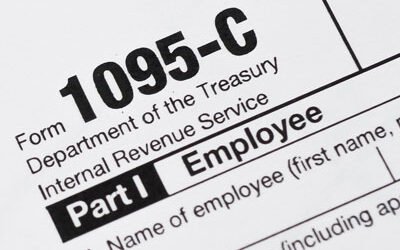[divider height=”30″ style=”default” line=”default” themecolor=”1″]
What is an LLC?
An LLC is a limited liability company with different rules in each state. In Tennessee, you can have many different members, or you can have a single member LLC. Federally, an LLC can be taxed as a partnership, corporation or as a part of the single member’s 1040 on a Schedule C, E or F. Click here for more info on the IRS website regarding LLC federal taxation.
Do I need an LLC, or should I just get insurance instead?
As a CPA firm, we don’t advise on legal matters, and you should consult an attorney regarding your particular situation. However, not every business needs an LLC – risk of business activities should be considered. An LLC might be more appropriate for a construction company, and less appropriate for someone selling digital art online. An LLC would be beneficial to a company with employees.
An LLC will not protect you from acts of negligence, failure to make payroll tax deposits, or failing to maintain the business separately from your personal accounts. We do recommend that anyone starting a business should set up a separate bank account solely for business purposes.
What are the taxes on a Tennessee LLC?
Before you form an LLC in Tennessee, be aware of the taxes you will be paying every year:
- TN Secretary of State Corporate Annual Report – Due every year on April 1, the CAR is a minimum of $300, and can be filed online here.
- TN Franchise & Excise Tax – Due on April 15th, generally filed with the federal tax return. This is a minimum fee of $100 each year, unless you are exempted under FONCE or OME rules.
- FONCE (Family owned non-corporate entities) exemptions are filed every year. The majority of FONCE filings are Farm LLCs and small residential rental LLCs. Read the full description here.
- OME (Obligated member entity) elections are filed every year. OMEs are sometimes used when an entity has already created an operating agreement and decides they would like to operate as an LLC structurally, but forgo the liability protection and not be subject to TN taxes. You can read more about becoming an OME here.
- Franchise tax is .25% of the greater of net worth or real and tangible property in Tennessee. So if you have $100,000 of assets in the LLC, the Franchise tax is $250.
- Excise tax is 6.5% of income taxable in Tennessee. If your LLC makes $50,000, the Excise tax is $3,250. Self-employment net earnings are excluded from excise tax.
Should I put real estate in an LLC?
Again, talk to an attorney about your specific situation regarding legal liability. If you decide to put real estate in an LLC in Tennessee, you will pay Excise tax on any capital gains when you sell the property. For example, you buy rental real estate for $250,000 and you improve the property by $50,000. Your basis is now $300,000. You decide to sell the property for $500,000. The $200,000 of gain is taxed at your federal capital gains rate at the time of the sale and the TN Excise tax rate of $200,000 x 6.5% = $13,000. Even if you have a FONCE exemption, you are still subject to this tax because sale of property is not covered by the exemption, unless it is sale of farm land.
How do I set up an LLC in TN?
If you decide you still want to proceed with forming an LLC, follow these steps, or consult with your accountant and/or attorney.
- Choose a name with LLC at the end. You can search here to make sure it’s a unique name.
- Decide the type of entity you will be setting up, either partnership, corporation or single member.
- File the Articles of Organization by going through the set up on the TN Secretary of State website. You will need to pay the filing fee either online or via check.
- Consider an operating agreement. It’s not required in TN, but is generally a best practice. An operating agreement would cover buy-sell arrangements, and various scenarios like the death of a partner.
- Apply for an EIN (Employer Identification Number) on the IRS website.
- Apply for the TN Franchise and Excise tax on TNTAP, which is the Tennessee Department of Revenue. You can also register at the same time for other taxes you might be subject to, such as Sales Tax or Business Tax.
- Continue abiding by the state laws and regulations and file your reports on time.




